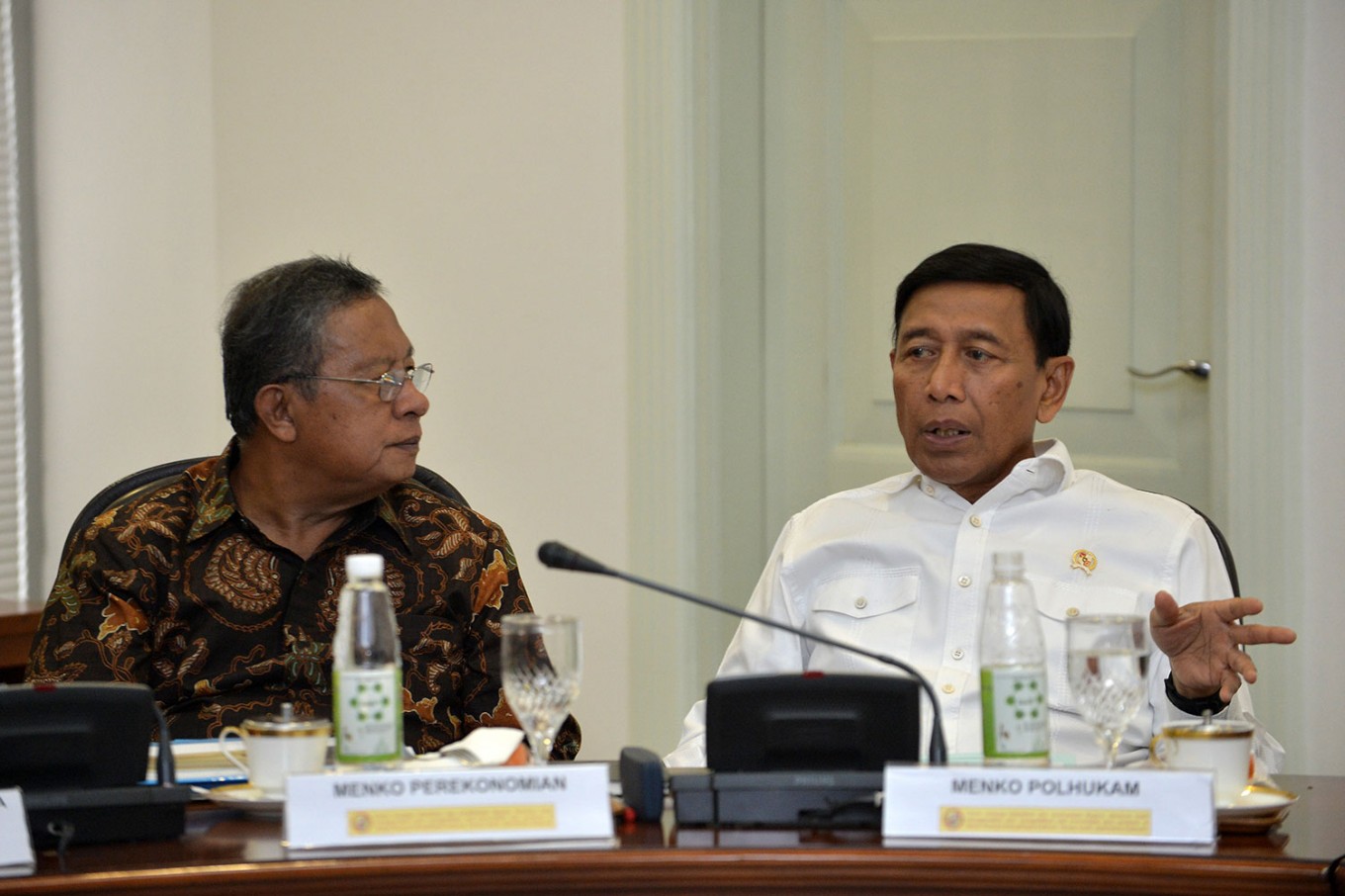Popular Reads
Top Results
Can't find what you're looking for?
View all search resultsPopular Reads
Top Results
Can't find what you're looking for?
View all search resultsBanking secrecy scrapped in May 2017
Customers will have to wave goodbye to their confidential data very soon as the government is determined to pass an urgent regulation to scrap banking secrecy in three months.
Change text size
Gift Premium Articles
to Anyone
Customers will have to wave goodbye to their confidential data very soon as the government is determined to pass an urgent regulation to scrap banking secrecy in three months.
The urgent regulation, in the form of a regulation in lieu of law (Perppu), is expected to pass and immediately come into effect in May, said Coordinating Economic Minister Darmin Nasution on Thursday.
“We are not looking to implement [the regulation] in phases. Everything [will come into effect] at once,” he said.
“[The Perppu draft] is in the process and a technical team will complete it this week. We have people from the Finance Ministry, tax authority, Law and Human Rights Ministry and my staff.”
(Read also: Indonesia drafting rules to end bank secrecy)
A Perppu is equal to a law and can only be issued in urgent cases. The move to issue the Perppu is part of the government’s efforts to comply with the Automatic Exchange of Information (AEOI), a global initiative that contains new standards to fight international tax avoidance.
The AEOI requires elimination of bank secrecy, which still exists in Indonesia’s Banking Law. Indonesia itself is listed as one of the jurisdictions committed to undertake the first exchanges by 2018.
As the clock ticks toward the implementation, the government and the House of Representatives only have a slight chance to complete all the necessary work, including the amendment of five laws — the Banking Law, the Sharia Banking Law, the Capital Markets Law, the Microfinance Law, and the General Taxation System Law (KUP).
The government is convinced there will be no disruption in the domestic banking industry when the Perppu is implemented.
“All countries in the world will do the same. Moreover, a lot of them are prepared to start imposing the standards this year. So, there is nowhere to go in this world [for taxpayers to avoid paying taxes],” Darmin said.
Mulya E. Siregar, the Financial Services Authority’s (OJK) deputy commissioner for banking supervision, said the government would invite the banking industry to hearings to ensure the smooth implementation of the Perppu.
Center for Indonesia Taxation Analysis (CITA) executive director Yustinus Prastowo said the government’s swift move would be positive for the AEOI implementation as there was skepticism over lawmakers’ ability to complete the KUP Law revision this year.
“This can actually serve as an incentive for people to participate in the tax amnesty because the AEOI will be seriously implemented,” he said, signaling that taxpayers should choose to declare their wealth in the tax amnesty rather than being forced to do so under the AEOI.
Separately, Finance Minister Sri Mulyani Indrawati said there were still many people who had yet to take part in the tax amnesty, which will end on March 31.
There are only 6,593 taxpayers with penalty payments worth Rp 111 trillion (US$8.31 billion) that have joined as of now. “I was actually hoping for 2 million people [ to join the tax amnesty],” she said.
Sri Mulyani expected taxpayers to participate in the tax amnesty before the government implemented the AEOI standards, in which it would be able to trace every single asset stored by Indonesians overseas, thanks to data exchange with worldwide tax authorities.
She warned that taxpayers who avoided paying their taxes by hiding their assets overseas, including in Singapore and other tax havens, would not be able to do so anymore in the future.










